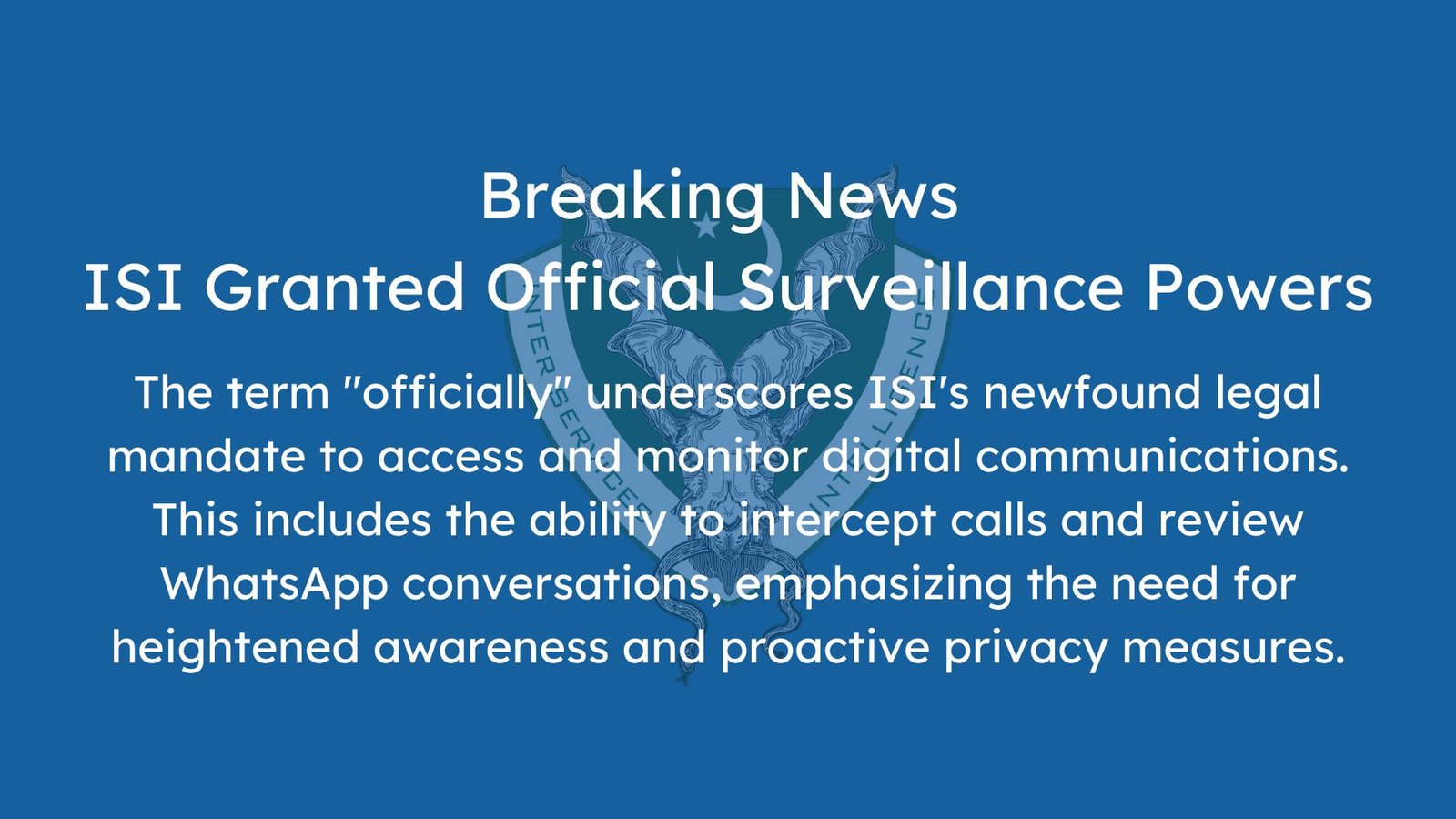The Inter-Services Intelligence (ISI), Pakistan’s premier intelligence agency, has recently expanded its surveillance capabilities to include listening to phone calls and monitoring WhatsApp messages. This development marks a significant advancement in the agency’s ability to gather intelligence and ensure national security. However, it also raises important questions about privacy, legal boundaries, and ethical implications.
Historical Context
The ISI has a long history of intelligence gathering, primarily focused on national security and counter-terrorism. Over the years, its methods have evolved from traditional human intelligence to sophisticated electronic surveillance. Legislative changes and global advancements in technology have enabled the ISI to adopt new tools and techniques, enhancing its operational efficiency.
Technical Specifications
The new surveillance tools employed by the ISI are highly advanced, allowing for the interception of a wide range of communications. These tools can monitor phone calls, read text messages, and access data from messaging apps like WhatsApp. The technologies involved include signal interception, data decryption, and advanced algorithms for data analysis.
Applications
The expanded surveillance capabilities of the ISI have several applications:
- Criminal Investigations: Monitoring communications to gather evidence and track criminal activities.
- Counter-Terrorism: Identifying and intercepting communications between terrorist cells.
- National Security: Preventing espionage and other threats to national security.
Benefits
The primary benefit of these enhanced capabilities is the increased ability to prevent and respond to security threats. By intercepting communications, the ISI can gather critical intelligence that aids in law enforcement and national defense. This can lead to faster response times and more effective prevention of criminal activities.
Challenges and Limitations
Despite the benefits, there are significant challenges and limitations:
- Privacy Concerns: The potential for misuse of surveillance powers raises serious privacy issues.
- Ethical Dilemmas: Balancing the need for security with the rights of individuals is a complex ethical challenge.
- Technical Limitations: Intercepting encrypted communications and managing vast amounts of data are ongoing technical challenges.
Legal Framework
The surveillance capabilities of the ISI are grounded in national laws and regulations. However, these laws must be carefully balanced with international standards and human rights considerations. The legal framework surrounding surveillance is constantly evolving to address new technological developments and ethical concerns.
Case Studies
Several high-profile cases illustrate the impact of ISI’s surveillance capabilities. In one instance, intercepted communications led to the arrest of a major terrorist leader. Another case involved monitoring a criminal syndicate’s activities, resulting in multiple arrests and the seizure of illegal goods.
Privacy Concerns
Public reaction to the ISI’s expanded surveillance powers has been mixed. While some support the measures for their potential to enhance security, others are concerned about the implications for personal privacy. Striking a balance between national security and individual rights is a critical issue that needs ongoing attention.
International Reactions
The global community has reacted in various ways to ISI’s new capabilities. Some countries have expressed concern over potential privacy violations, while others have acknowledged the necessity of such measures for national security. International comparisons highlight differences in legal and operational approaches to surveillance.
Expert Insights
Experts in security and privacy have weighed in on the issue, offering diverse perspectives. Some emphasize the importance of robust oversight and accountability, while others warn of the dangers of unchecked surveillance. These insights are crucial for shaping future policies and practices.
Future Prospects
Looking ahead, advancements in technology are likely to further enhance the ISI’s surveillance capabilities. However, this will also necessitate ongoing updates to legal and ethical frameworks. The future will likely see continued debate over the balance between security and privacy.
Comparative Analysis
Comparing ISI’s capabilities with those of other intelligence agencies reveals both strengths and weaknesses. While ISI’s tools are advanced, they must be integrated into a comprehensive framework that includes legal safeguards and ethical considerations.
Conclusion
In conclusion, the ISI’s new surveillance capabilities represent a significant advancement in national security. However, they also pose important challenges related to privacy and ethics. Ongoing dialogue and careful regulation will be essential to ensure that these tools are used responsibly and effectively. For More Details Visit Here





























